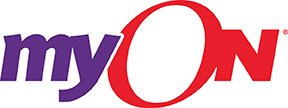Educational Technologies and Concepts that Every Teacher Should Know: Part V

Click here to read all the posts in this series.
During this five-part series, I’ve been talking about education technologies and concepts that every teacher should know about. Today I’m going to wrap up the series with several additional technologies and concepts.
Student-led planning. When special education students reach high school, they are being called upon more and more to have input into their individual learning plans. This is to prepare these students for more independence in adulthood. It also gives teachers more insight into the methods these students favor when it comes to learning. Instead of dictating what and how special education students should learn, student-led input helps chart the course toward academic and life skills.
Holography. Holography was just science fiction a few years ago, but it’s now becoming a reality in some fields, such as medicine. This imaging technique, which allows one to see a 3-D view of an image, has yet to become a part of everyday classroom activities. Holography introduced in classroom activities would change entirely how some subjects are taught. Biology, physics, astronomy, and chemistry could be taught on an entirely different level (S. H. Kim & Bagaka, 2005).
Time-management tools. These tools are variations on calendar software. They can be used to schedule your appointments, or you may want to take advantage of more complex features. Some tools can be viewed online, affording access for more than one student at a time. A teacher can arrange appointments or make a note of due dates for assignments so that all students in a class can keep track of such details. Most of these tools allow the option to put some information in private mode, too, so the administrator can choose which calendars people can see and which cannot. Most of these tools include a feature allowing teachers to arrange meetings and groups.
Virtual reality. Experiential education has been used as an instructional method for years. Field trips have always served to introduce students to real-world issues, to supplement learning by helping students get a fresh perspective on what they have learned in books. Technology using virtual reality, however, has introduced new levels of experiential education. Virtual 3-D worlds allow students and teachers to visit places otherwise impossible to visit without it. They can go to space, deserts, or foreign countries without physically traveling there.
Natural user interfaces. In its simplest definition, a natural user interface (NUI) uses the body’s movements to achieve certain outcomes. In the consumer market, examples of NUIs include the Nintendo® WiiTM, Xbox KinectTM, and the iPhone virtual assistant, Siri. The potential in the field of K–12 education is still being realized but will certainly lead to developments in the next half-decade. Students who are blind, deaf, or have physical disabilities or autism can better learn through use of this still evolving technology.
We are living in the midst of a tremendous upheaval in the fields of technology and communication. Advances in technology have influenced every aspect of modern life and are having an enormous impact on education. Technology can promote student engagement, immerse students in real-world issues, enhance discussions and workshops, and facilitate formative assessment.
Students today are often digital natives, very familiar with technology. But there’s a significant digital divide between students with access to technology and students, mostly from lower socioeconomic backgrounds, who don’t have the same level, range, and consistency of access.
The new technological advances can be helpful, but there are some associated problems. Students may spend too much time using their devices and the Internet includes information that may be harmful as well as helpful. Without clear parameters, teachers may become overly focused on technology to the detriment of information transfer.
Although there are pros and cons to most forms of technology and most technology-related education concepts, there is so much to look forward to in the 2014-2015 calendar year when it comes to K-12 classrooms. The concepts and technologies that I have discussed will allow educators to better prepare students for the rest of their academic careers and for lifelong success.
Read all of our posts about EdTech and Innovation by clicking here.





